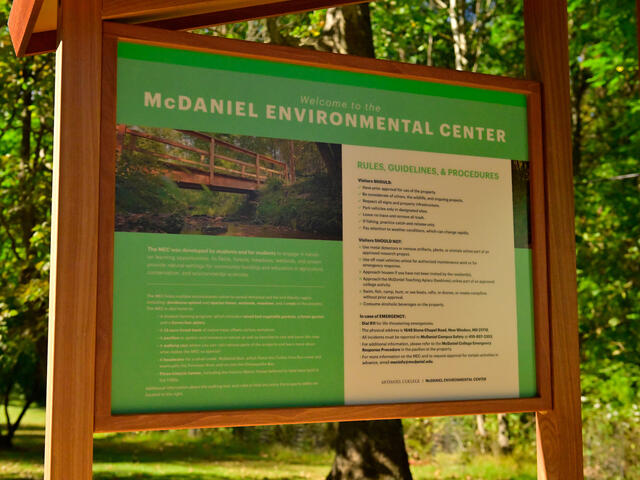Environmental Studies
As the political debate over climate change rages, the need for highly trained environmental specialists has never been more urgent. McDaniel’s Environmental Studies major offers multiple tracks, so you’ll be equipped to fight this battle on many fronts.
Mortarboard
Degree Types
Major,Minor
Heart
Distinctive Requirements
Capstone
Document
Spaces for Research
The McDaniel Commitment in Action

McDaniel Environmental Center Greener | More sustainable | A better place for all

Meet a Green Terror Alum Class of 2024: Lauren Portis Career Experiences in Environmental Studies












